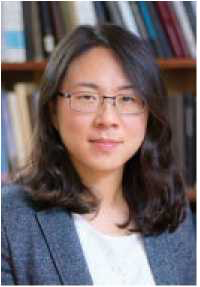Zhenzhen Yu Benjamin Schneiderman1
1 George S. Ansell Department of Metallurgical and Materials Engineering,
Colorado School of Mines, Golden, CO 80401
EXTENDED ABSTRACT: In almost every manufacturing sector, challenges exist in joining dissimilar materials due to the mismatches in their thermal physical properties and chemical incompatibility; these challenges are exacerbated as component and system designs demand ever-increasing performance and interest in additive manufacturing of advanced multi-material structures continues to grow. A promising approach to prevent the detrimental reactions at the dissimilar joint interface is to place a difiusion barrier between the base metals. Meanwhile, a ductile interlayer is needed to accommodate the themally induced stress due to the difference in thermal expansion of the base materials. Multi-principal elements alloys (MPEA) have a vast compositional space available. Their tendency to form entropy-stabilized, simple solid solution phases, and to exhibit composition-dependent sluggish diffusion characteristics, make them potential candidates as filler metals for similar and dissimilar joining. In this presentation, science-based high-throughput computational composition design methodologies will be discussed, which can effectively accelerate the interlayer alloy design, which will enable dissimilar joining of incompatible materials with optimized performance (e.g., quality, weight, cost, and productivity) fbr a wide range of applications in automobile, aerospace, and power generation industries.
Keywords: High entropy alloy; multi-principal elements alloy; joining; Multi-material structures

Prof Zhenzhen Yu is an Associate professor in the department of Metallurgical and Materials Engineering (MME) at Colorado School of Mines, and the Director of the Center fbr Joining, Welding and Coatings Research (CWJCR). She received MS and PhD degrees from the Department of Materials Science and Engineering at the University of Tennessee, Knoxville and B.S. degree from Mechanical Engineering at East China University of Science and Technology. Before joining CSM, she worked as a postdoctoral research associate at Oak Ridge National Laboratory. Her research interests include weld metallurgy, development of similar/dissimilar joining technologies, weld consumables design, and characterization of transient material states. She has published 32 papers in reputed journals, 13 conference proceeding papers and 6 patents. She received the National Science Foundation Faculty Early Career Development CAREER
Award, McKay-Helm Award, Prof Koichi Masubuchi Award, and the A.F. Davis Silver Medal Award.